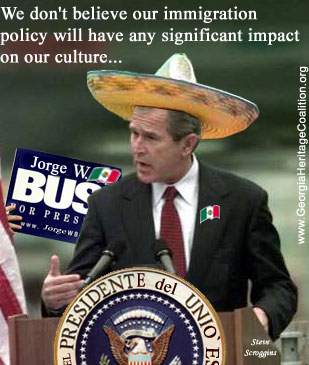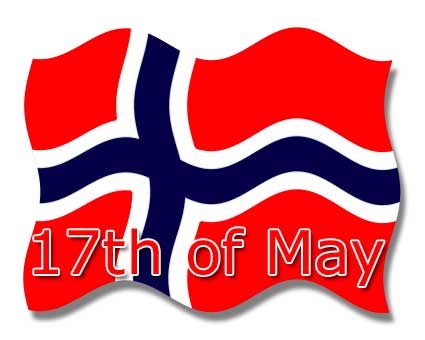Amexica I: N.Y., U.S. aesthetic theory
III: Hot Savages and Cold Decadents (to be linked)
IV: Amexican Ups and Downs (to be linked)
A post today by Don Jim Tucker got the wheels turning on a series of entries that had been grinding away in the back of my mind.

What is the proper course of U.S. cultural development and what do we owe previous generations in light of the explosion of the Hispanic population and culture? Let's begin working forward, from our foundations, with the overarching principle that Catholicism is the only cultural accretion that trumps previously established ways of doing things. As the foreign and indigenous cultures of any given area differ, I will concentrate on my own: Upstate New York.
All the land we sit on was once rightly owned, or at least inhabited, by Amerindians. Although somewhat complicated by the massive gaps of open land, the ethnographic map was solidly Red, not White. To my conservative mind, Europeans began a genocide by overwhelming the Iroquois with population. It was a genetically White, culturally Western European watering down of what ran before.
- Today, is it still fundamentally more "American" to adopt Amerindian mores than newer ones? Yes. Not in those pragmatic ways in which life functions, a la living in teepees or holding Matriarchal Councils, but certainly in wearing brushed leather jackets and turquoise - and learning their languages.
After the Dutch and French settlements, and their conquest by the British, the first real uniform code of civilization reached the New World. The Iroquois were after all savages (this is not entirely a bad thing as the word may imply), lived quasi-nomadic lifestyles, and were still in the darkness of pagan practice. Our current ruling regime was also fixed during this period.
- Do we still owe the British a debt of cultural gratitude? Yes. With the exception of Lousiana and a few southwestern states, every government in the U.S. functions in the tradition of Anglo-Saxon common law. We were owned by them, and their blood led the Revolution. Our founding documents are written in their language, and English has been the majority tongue for our entire history.
- Every civilization deeply owes the culture that gave it Christianity. Although the U.K. had an imperfect version of the Church, they still did much to shed Christ's Light on the New World. Other areas of the U.S. are more deeply are in debt to Spain, with her perfect Catholicism. This is true just as Ireland owes the U.K., the U.K. owes France, France owes Rome, and Rome owes Jerusalem.
Later waves of Catholic immigrants, the Quebecois, then Irish, Italian, and Polish, added to further Catholicization of the populace, but only in numbers, not in governance and very little in mass culture.
- What debt do we have to post-Revolution Catholic newcomers? Not much. Between losing their identities so quickly, the large scale devolution of aesthetics since the Industrial Revolution (when many arrived), and the clannishness WASPs still had, their contributions are negligible. So any debt we have would be through the blood some persons share with them, not as Americans per se.
In New York, where Hispanics do not have the history they do in the Southwest or Florida, they just constitute part of the onslaught of global immigration since LBJ opened the gates to anyone.
- What then, do non-Hispanic New Yorkers owe to Hispanics, culturally? Nothing. We already have three layers of foundational culture: Amerindian, British, and polyglot Catholic. Amerindians were the foundation, being here first, the U.K. brought civilization, and the Catholics brought ... Catholicism. While Hispanics boost Catholic population, they also add to the disorder of a multilingual, multicultural society (to be touched on later), as did the Italian and Polish before them. And in the Novus
 cOrdo era, heavily ethnic populations can even split the Roman Mass-goers along linguistic lines.
cOrdo era, heavily ethnic populations can even split the Roman Mass-goers along linguistic lines.
Unless the Hispanics can do something on the magnitude of establishing Catholicism in law, or re-instituting a monarchy, New Yorkers are right to consider them members of a foreign culture.
I shouldn't have to explain that this does not make them bad people. But residency and citizenship do not imply national status, unless one considers his nation to be nothing more than the last line on his mailing address. Hispanics inherently know where their loyalties lie, and Anglophone American Catholics do not, which is to be explored in Part II.






